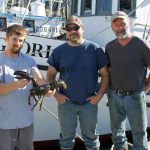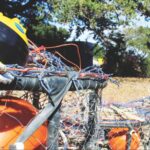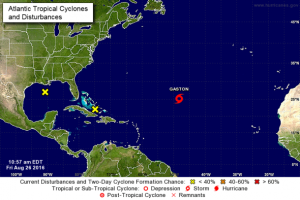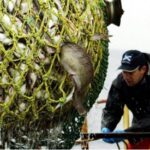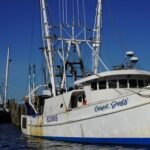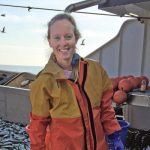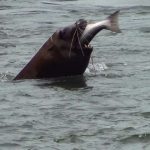Daily Archives: December 8, 2013
Stonington: Bureaucracy claims another victim – After more than a century, Wilcox Marine closing down
STONINGTON — Jeff Wilcox can remember when there were 50 commercial fishing draggers in Stonington Harbor. Now there are only two, said the owner of Wilcox Marine Supply Inc. As the fishing industry has declined — due to overly stringent federal regulations, fishermen say — Wilcox’s customer base has shriveled. And now, he says he has to close the doors of his longtime family-owned business. more@westerlysun 19:15
Seal hunt far from dead, as facts can demonstrate
![]() Here are some numbers these academics should also consider: There is a demand for seal products. Between 2005 and 2011, Canada exported over $70 million US worth of seal products to more than 35 countries. The hunt supports our domestic fishery. Beside what the hunt provides, we need to account for what it prevents. There are over 7.3 million harp seals in Atlantic Canada, each of them eating up to $4,000 worth of fish products. In the 2013 seal season alone, 92,000 seals were taken, saving $3.6 billion worth of product for the fishing industry. more@vancouversun 18:26
Here are some numbers these academics should also consider: There is a demand for seal products. Between 2005 and 2011, Canada exported over $70 million US worth of seal products to more than 35 countries. The hunt supports our domestic fishery. Beside what the hunt provides, we need to account for what it prevents. There are over 7.3 million harp seals in Atlantic Canada, each of them eating up to $4,000 worth of fish products. In the 2013 seal season alone, 92,000 seals were taken, saving $3.6 billion worth of product for the fishing industry. more@vancouversun 18:26
Dungeness Season: For local crab fishermen, it’s all about unity. Crab price negotiations continue
 For local crab fishermen, it’s all about unity. United, they can keep their boats docked and try to negotiate a higher price for their product. Divided, they will fall like dominoes, and set out on the water ready to take whatever buyers are offering. With the season having opened a week ago, negotiations are currently at a standstill. In fact, according to some, it’s hard to even call what’s going on negotiations. ”The buyers have offered $2.50 (a pound), we’ve asked $3, and those numbers haven’t changed,” said local fisherman Dave Bitts. Meanwhile, fishermen in Oregon and Washington, where regulators postponed the season because tests showed Dungeness crab there to be too small, are readying to start fishing Dec. 15, adding a new layer of complexity to local negotiations. more@times-standard 18:17
For local crab fishermen, it’s all about unity. United, they can keep their boats docked and try to negotiate a higher price for their product. Divided, they will fall like dominoes, and set out on the water ready to take whatever buyers are offering. With the season having opened a week ago, negotiations are currently at a standstill. In fact, according to some, it’s hard to even call what’s going on negotiations. ”The buyers have offered $2.50 (a pound), we’ve asked $3, and those numbers haven’t changed,” said local fisherman Dave Bitts. Meanwhile, fishermen in Oregon and Washington, where regulators postponed the season because tests showed Dungeness crab there to be too small, are readying to start fishing Dec. 15, adding a new layer of complexity to local negotiations. more@times-standard 18:17
Multinational search for missing crewmember in the Western Pacific
POHNPEI, FSM—Multiple agencies from the Federated States of Micronesia, Japan, and the U.S. coordinated efforts, over the course of five days, to search for a crewmember that was reported missing from the Japanese fishing vessel Chokyu Maru 35. A total of 2,234 square nautical miles were covered during the search. more@saipantribune 17:18
Traditional Knowledge in the “Bristol Bay Watershed Assessment”
 The final version of the EPA’a “Bristol Bay Watershed Assessment” will likely be released in the next couple of months. One part of the assessment looks at the importance of salmon in the culture and everyday life of the native people of Bristol Bay. KDLG’s Mike Mason has the story. listen here 13:56
The final version of the EPA’a “Bristol Bay Watershed Assessment” will likely be released in the next couple of months. One part of the assessment looks at the importance of salmon in the culture and everyday life of the native people of Bristol Bay. KDLG’s Mike Mason has the story. listen here 13:56
Members of Maine’s Marine Resources Committee seek to revive sea urchin fishery
 Democratic Rep. Michael Devin of Newcastle tells Maine Public Broadcasting Network that the state’s two-zone concept may be hindering the fishery’s recovery. He’s introduced a bill that would create small-scale urchin zones. He says smaller zones that take into account population dynamics may help manage the fishery better and encourage a speedy rebound. more@kjonline 12:29
Democratic Rep. Michael Devin of Newcastle tells Maine Public Broadcasting Network that the state’s two-zone concept may be hindering the fishery’s recovery. He’s introduced a bill that would create small-scale urchin zones. He says smaller zones that take into account population dynamics may help manage the fishery better and encourage a speedy rebound. more@kjonline 12:29
Loss of shrimp season hits the pocketbook hardest
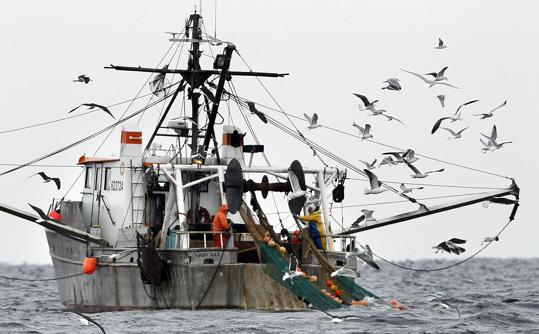 NOBLEBORO — Behind Tim Simmons’ house, down a hill past piles of coiled rope and brightly painted bundles of lobster buoys, sit 100 shrimp traps.The traps – some purple, some black, all relatively new – will remain unused this winter for the first time in the 14 years Simmons has been shrimping in the Gulf of Maine. “It’s hard to have them sitting there not making money,” Simmons said Thursday, three days after regulators announced there will be no 2014 season. more@portlandpress 12:07
NOBLEBORO — Behind Tim Simmons’ house, down a hill past piles of coiled rope and brightly painted bundles of lobster buoys, sit 100 shrimp traps.The traps – some purple, some black, all relatively new – will remain unused this winter for the first time in the 14 years Simmons has been shrimping in the Gulf of Maine. “It’s hard to have them sitting there not making money,” Simmons said Thursday, three days after regulators announced there will be no 2014 season. more@portlandpress 12:07
Rhode Island Fishermen’s Alliance December 8, 2013
 “The Rhode Island Fishermen’s Alliance is dedicated to its mission of continuing to help create sustainable fisheries without putting licensed fishermen out of business.” Read the Update
“The Rhode Island Fishermen’s Alliance is dedicated to its mission of continuing to help create sustainable fisheries without putting licensed fishermen out of business.” Read the Update






 Imagine for a moment if France moved in and started mining ore on the Southern Shore, based on their previous settlement history. Or if England moved in and started harvesting timber in central Newfoundland, citing the previous colonial government as giving them the right to do so. Or if the Scandinavians (formerly Vikings) started drilling and extracting oil in St. Anthony because they used to live there. I wonder how everyone would react to that? Call me a sensationalist, but I would suggest it would be torch and pitchfork time, heads would roll, and Rome would be razed to the ground in a campaign of Newfoundland nationalism the likes of which we have never seen. So please tell me how it is that when exactly that same thing happens with fish, nobody gives a fiddler’s you-know-what? Yes, that’s a rhetorical question; so no need to be pointing it out.
Imagine for a moment if France moved in and started mining ore on the Southern Shore, based on their previous settlement history. Or if England moved in and started harvesting timber in central Newfoundland, citing the previous colonial government as giving them the right to do so. Or if the Scandinavians (formerly Vikings) started drilling and extracting oil in St. Anthony because they used to live there. I wonder how everyone would react to that? Call me a sensationalist, but I would suggest it would be torch and pitchfork time, heads would roll, and Rome would be razed to the ground in a campaign of Newfoundland nationalism the likes of which we have never seen. So please tell me how it is that when exactly that same thing happens with fish, nobody gives a fiddler’s you-know-what? Yes, that’s a rhetorical question; so no need to be pointing it out.




























